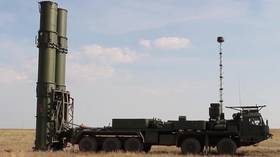Interview with Mikhail Chernov

Mikhail Chernov, the Head of the International Department of Russian Business Consulting journal, joined Russia Today to comment on the recent political events in Ukraine and the final settlement of the early parliamentary elections date.
Russia Today: Why do you think it took such a long time to come to this agreement?
Mikhail Chernov: It is because there are three different groups in Ukraine. There is the group of Mr. Yanukovich, that of Mr. Yushchenko and that of Ms. Timoshenko. And these political forces have very different interests. So, it took time to come to this agreement. But I think this is not just an agreement but a victory for President Yushchenko.
RT: So you believe the President won this round?
M.C.: Well, I think that tactically the President won. This agreement is exactly what he wanted – namely the elections. But this is only a tactical victory, because after the “Orange Revolution” all what we saw in Ukraine was political fighting of relatively same-sized groups. They have a different quantity of the seats in the Parliament, but from the point of view of business, from the point of view of the forces which are behind them, they are nearly equal.
RT: Do you think that this reconciliation by the Ukrainian leadership will finally lead to some kind of a state of peace in the country; are the political forces actually beginning to agree and to compromise?
M.C.: This is not the reconciliation, this is a cease-fire, I would say. Well, I think nothing will change, because you could compare this situation with the period of the civil war in Russia in the beginning of the 20th century – this is the same, but without the fighting. So I think that the reconciliation will never come in Ukraine without some kind of external force putting an end to this crisis.
RT: So you do not think that we will see the end to the mass street demonstrations that we have been seeing over the past few weeks in Ukraine?
M.C.: Well, I do not expect mass demonstrations, but I think that a new round of this crisis could appear in several months, or half- a-year.
Earlier, Mikhail Chernov spoke to Russia Today on economic co-operation in the Black Sea region, as the Black Sea Economic Co-operation Organisation opens its 16th session in Belgrade.
Russia Today: This organisation encompasses a wide geography. What is interesting, though, the organisation unites the countries that have obvious political differences, for example Turkey and Greece, Azerbaijan and Armenia, Georgia and Russia. And the question is how do they co-exist within this organisation and what unites them?
Mikhail Chernov: Well, the Black Sea region unites them, it is obvious. This organisation is a very good avenue and I think that for many countries it is the only avenue to communicate and to discuss their problems, both economical and maybe unofficially political problems. So it is a good venue.
RT: What kind of economic issues or rather projects are they working on and what is Russia












